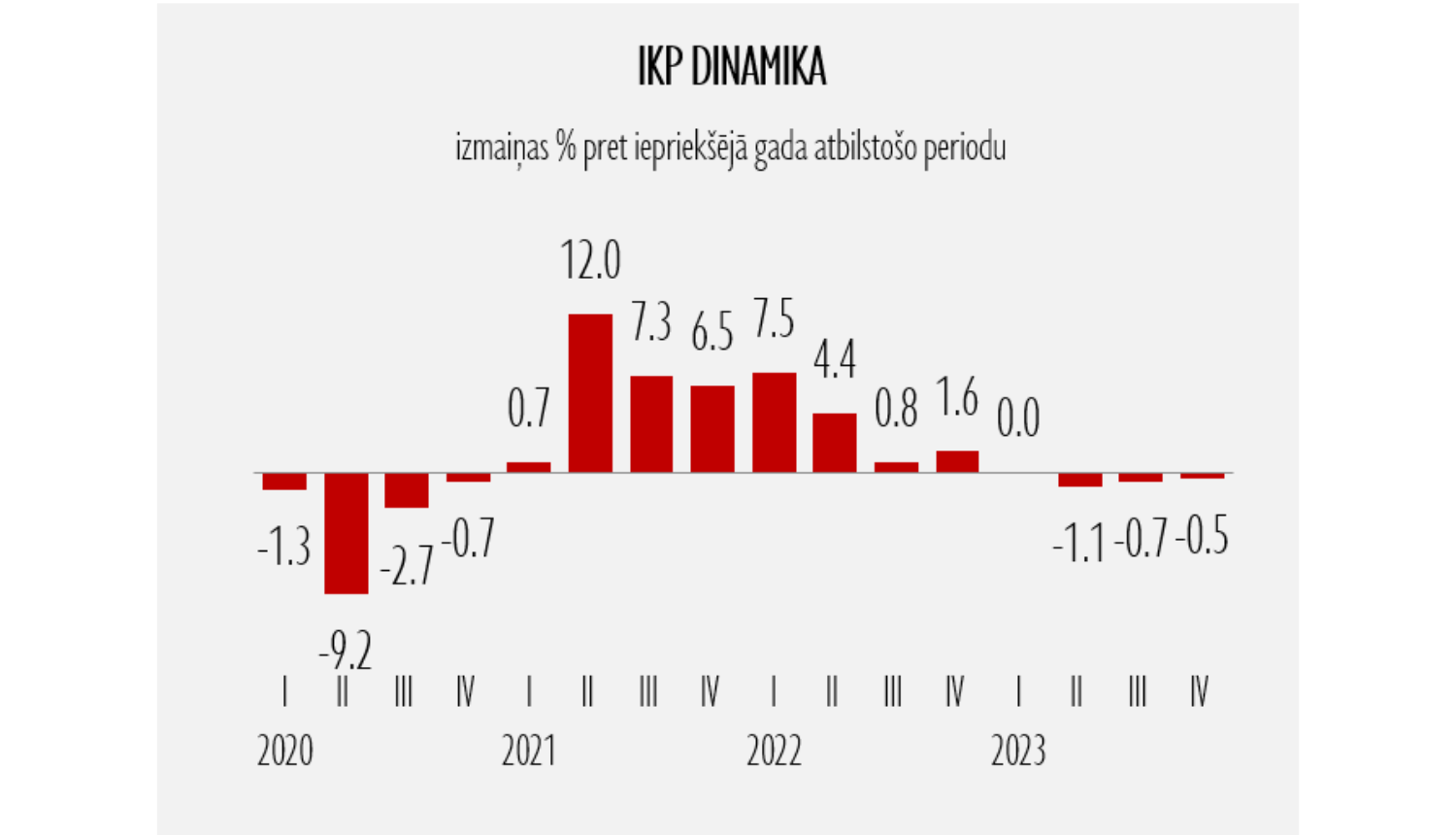The information was translated using the ChatGPT service.
According to the rapid estimate of the Central Statistical Bureau's Gross Domestic Product (GDP), in the fourth quarter of the past year, the GDP was 0.5% lower than in the fourth quarter of 2022 (at constant prices based on non-adjusted data). According to provisional estimates by the Central Statistical Bureau (CSB), GDP was influenced by growth in the manufacturing sector (by 3.6%), as well as a decrease in the service sector (by 0.7%) and product tax revenue (by 9.2%). Overall, GDP contracted by 0.6% last year.
At the same time, a positive trend is noteworthy – in the fourth quarter of the previous year, compared to the third quarter of 2023, seasonally and calendar-adjusted GDP increased by 0.4%, indicating that economic activity, albeit at a moderate pace, is on the rise. Detailed data for the last quarter of the past year will be available in a month.
Earlier trends in economic development indicated that in 2023, GDP would remain close to the level of 2022. Unfavorable external conditions and weak demand affected Latvia's export indicators. High inflation negatively impacted household consumption and real incomes of the population. Geopolitical conditions in the region and weak lending hindered a more rapid increase in investments.
It is expected that the situation in Latvia's economy will improve this year. International institutions forecast economic growth in Latvia's major export markets in 2024, positively impacting our export opportunities. With real wages starting to rise, it is expected that private consumption will also increase. Meanwhile, the implementation of EU funding programs will positively affect the dynamics of investments.
"This is a crucial moment when, in the phase of persistently low growth in external markets, the main stimulus for the economy must come from the state. It is our responsibility to quickly channel EU funding into circulation, reduce bureaucracy, alleviate administrative burdens on investments, and address the issue of financial accessibility for business development. I am confident that by fulfilling these three conditions, Latvia has the prospect of returning to solid GDP growth in the near future," emphasizes Minister of Economics Viktors Valainis.
As observed in recent years, this year, too, there are likely to be significantly different trends by sector. Similar to 2023, the construction sector is expected to experience the fastest growth this year. Positive sector development will be influenced by both EU funds and public procurement, as well as the reduction in inflation, which will have a lesser impact on the cost escalation of implemented construction projects.
The trade sector, which gradually recovered from the decline in 2023, will likely continue to recover, positively influenced by the increase in foreign trade flows and the dynamics of the wholesale sector. Meanwhile, the retail sector will be positively affected by the growth in private consumption.
It is expected that manufacturing will return to positive growth rates, primarily driven by the improvement in export opportunities. Difficulties will persist for some companies associated with the markets of Russia and CIS countries, and in this situation, they will need to continue to seek new supply opportunities and new markets for their goods. Industries oriented toward the domestic market will be influenced by people's purchasing power.
Assuming no significant worsening of external conditions, it is anticipated that economic growth in Latvia in 2024 could reach 2-3 percent.



